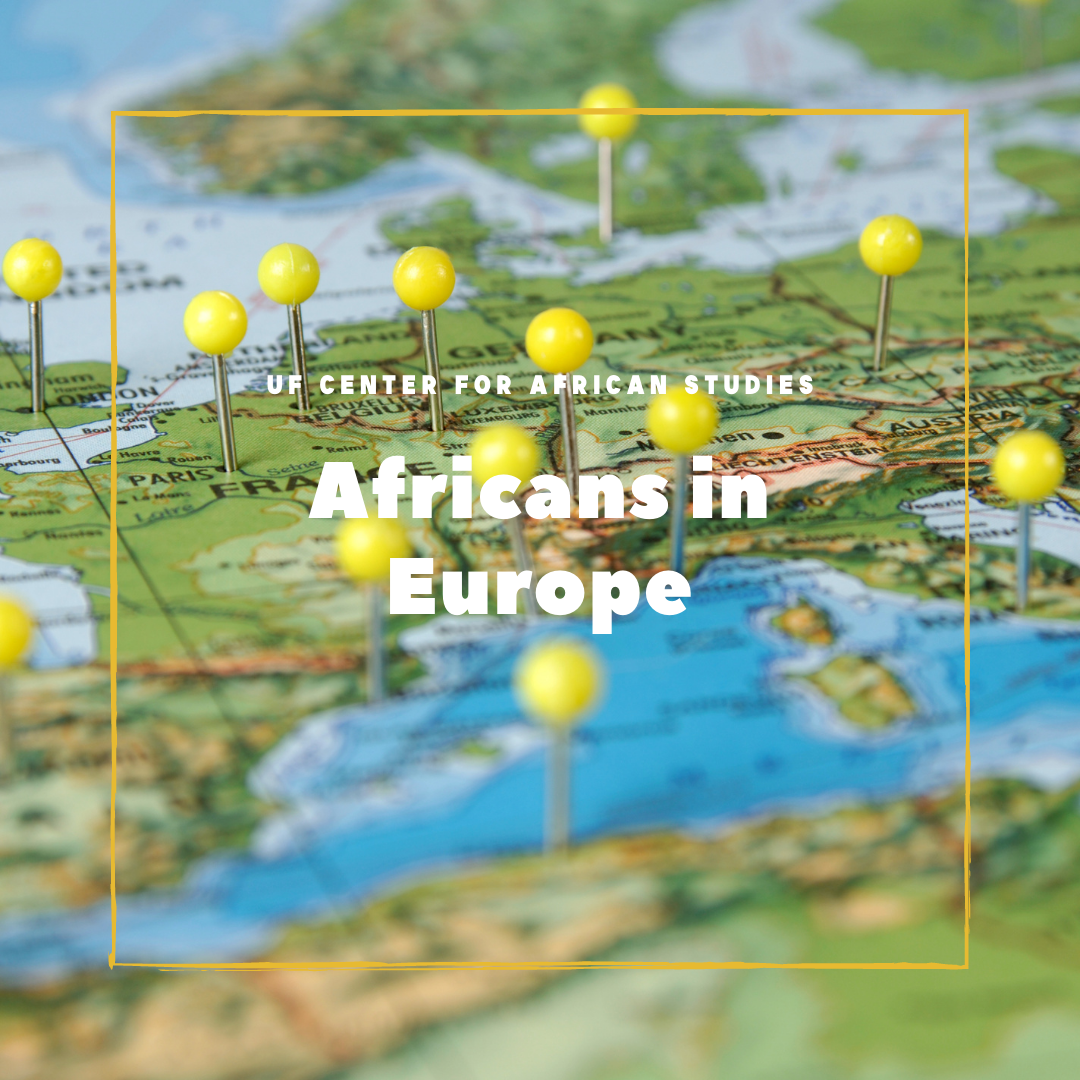
- This event has passed.
Africans in Europe Working Group First Meeting
October 12, 2021 @ 3:30 pm - 5:00 pm

Please join us for our first session of the AFRICANS IN EUROPE working group this Tuesday October 12, 3.30-5, in Grinter 404.
At that time, we will do two things
1) introductions: why are you interested in the Africans in Europe theme??
2) begin to discuss how to organize two ZOOM WORKSHOPS with guests from afar for Spring term. This is an important opportunity for graduate students (and faculty) to participate in organizing a mini-conference and help choose themes and speakers.
HOW TO PREPARE, if you like (otherwise just come):
1) a bibliography of interesting ethnographies, articles, and books that relate to your theme. Explore them as you wish. They may provide thematic or speaker ideas. View here.
2) an article that we found interesting. Read or skim it if you wish; abstract below. May it help you think about your introduction and your interest in our theme. View here.
Article Abstract
Pian, A. (2017). The discursive spaces of the border: Putting death and arbitrariness during the journey to Europe into words. Revue européenne des migrations internationales, 33, 45-62. https://doi.org/10.4000/remi.8728
Drawing on a variety of fieldworks conducted with migrants who attempted to cross into Europe illegally, this paper examines the making of discourses on death and on violence at the borders and bythe borders. The first section identifies different registers of discourses on death, which refer to physical death in the literal sense and social death in the figurative sense. The discourses that touch on death or the threat of death in these journeys to Europe are however characterized by significant nuances, depending on whether they aim at legitimating, justifying or even rationalizing emigration, at conveying extreme experiences of dealing with natural barriers, or at describing the forms of institutional violence experienced during the journey. The second section looks at how the experience of the opaque management of migrations – particularly in detention centres – fuels certain rumours, which may be seen partly as a means to resist uncertainty. These narrativizations tell us about the ways in which institutional order (or dis-order) is perceived and experienced, which condition relationships to State agents. Studying narratives may then yield insights into how borders are also shaped in and through discourse.
LOOKING FORWARD to seeing you there,
Nancy Hunt, Abdoulaye Kane, Alioune Sow
Coordinators